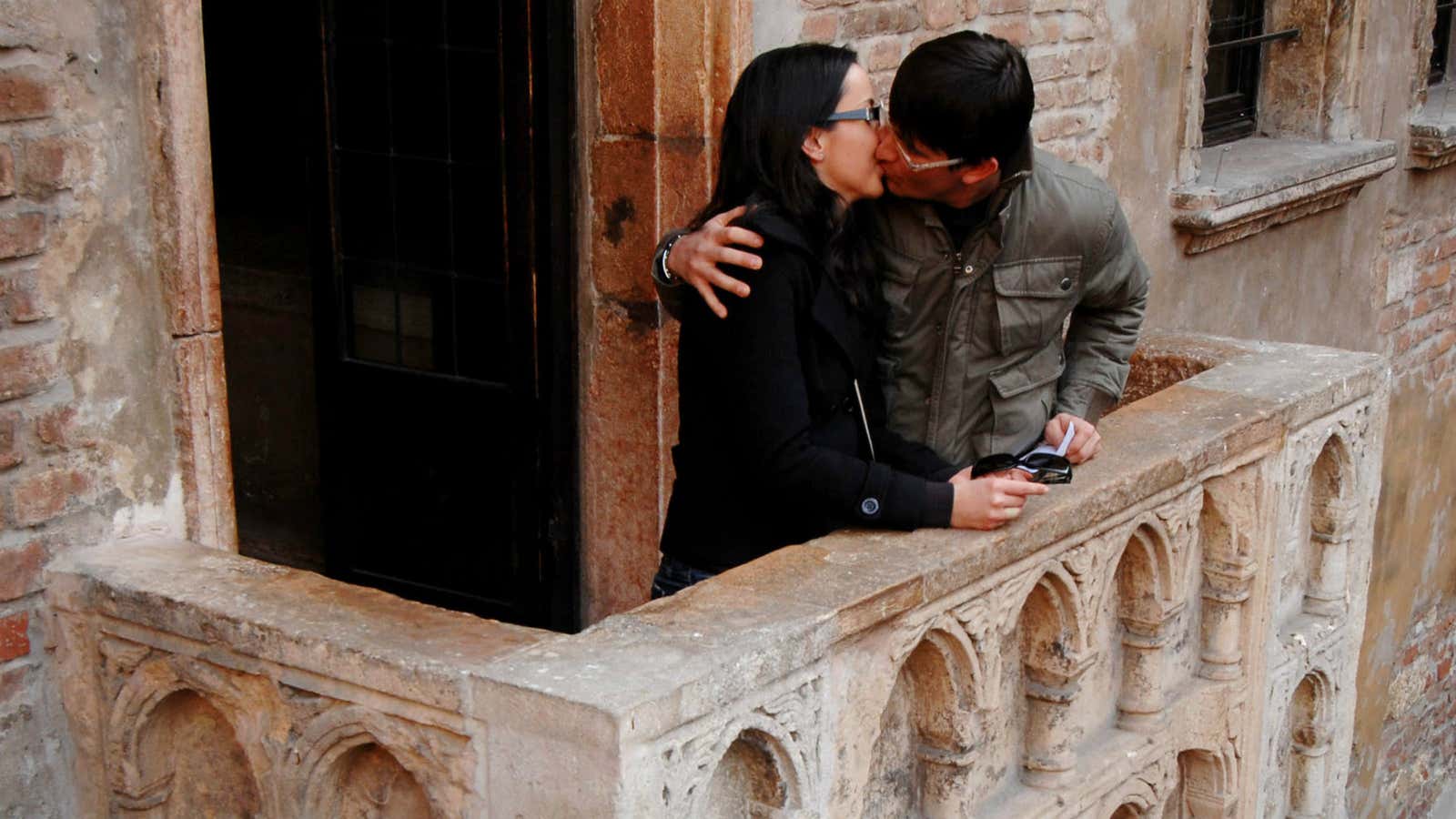More than 50% of Americans think the woman should be legally required to take her husband’s name in heterosexual marriages. The reason typically given is that having the same name increases a sense of family identity.
Making it into a legal requirement would be bizarre, but I agree such identity is important and sharing a name helps in its creation. Even on its own, marriage is, among other things, a way of tying yourself to the mast: deliberately making public declarations, taking vows, and arduously organizing an unnecessarily expensive party, all in order to increase your investment in each other, and make it more difficult to end the relationship during future difficult phases. Having the same name is one more way of making public and concrete your intention to stay together for the long haul.
But why should that mean that the woman takes the man’s name in heterosexual marriages? Why should the man not take the woman’s name or, as my fiancée and I have chosen to do, both choose a new name? (We’ve gone with “MacAskill”, her maternal grandmother’s maiden name. When I tell people I’m changing my name, I’ve met raised eyebrows, confusion, or aggressive questioning. No one’s batted an eyelid when she’s told others the same.)
As with so many gender-biased traditions, this one has pretty disturbing roots. The legal concept of coverture came from England and caught on in 19th century America: the idea was that a woman, upon marriage, becomes the property of her husband. She had no right to vote or take out a bank account because she could rely on her owner to do that for her. And, of course, she couldn’t be raped by her husband—because she was essentially her husband’s property, and he was free to do with her what he wished.
We’ve made progress on these issues (though some remarkably late). But the tradition of taking the man’s name remains and, given its background, it seems to me it’s simply bad taste to carry on with it, in the same way that it would be bad taste to put on a minstrel show, no matter how pure the intentions.
You might say that we need some rule, and that taking the man’s name is as good as any other. But is this true? Why not go with whichever name sounds better? Or which name is associated with the coolest people? (MacAskill clearly beats my birth surname “Crouch” on both counts, having a better ring and being the name of both Giant MacAskill—a forebear of my fiancée’s who has a claim to be the world’s strongest ever man—and Danny MacAskill, a trial-biking legend who, also being descended from Giant MacAskill, must be a very distant cousin.) Or any other choice made by both parties.
In general, we are happy with the idea of molding our self-image in a whole number of ways, including how we dress, look, and talk. And having the right name is a big deal—affecting expected grades, likeability, success at job applications, and likelihood of having your Facebook friend request accepted. So why the double standard when it comes to marriage?
